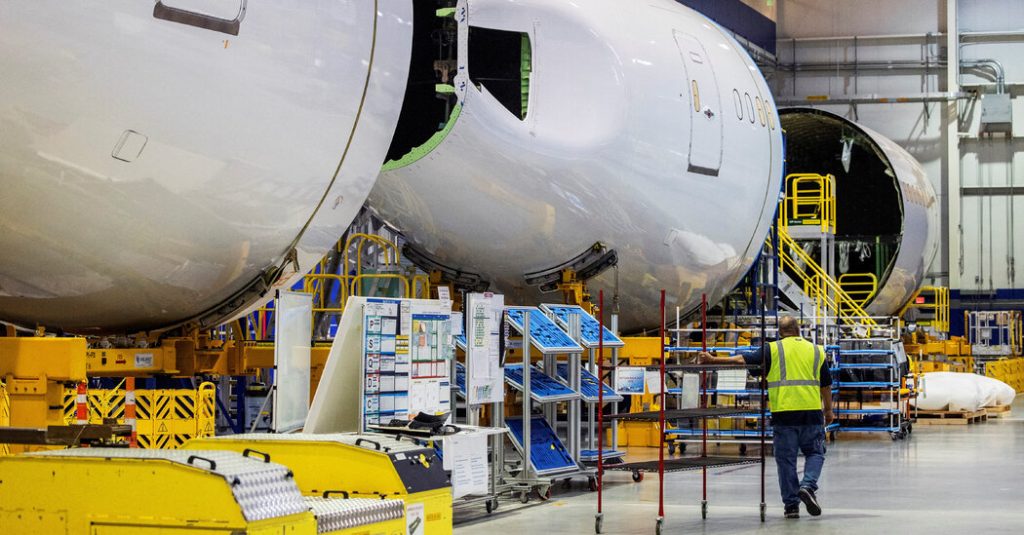The Federal Aviation Administration is currently investigating claims made by a Boeing engineer, Sam Salehpour, who alleges that sections of the fuselage of the 787 Dreamliner are improperly fastened together and could potentially break apart mid-flight. Salehpour detailed his concerns in interviews with The New York Times and documents sent to the F.A.A. Boeing has acknowledged that manufacturing changes were made, but maintained that these alterations do not impact the safety of the airframe. The company has conducted extensive testing on the Dreamliner and is currently analyzing any potential long-term fatigue concerns.
Boeing has faced significant scrutiny in recent months, particularly since a door panel on a 737 Max jet detached during a flight, prompting questions about the company’s manufacturing practices. In response to Salehpour’s allegations, the F.A.A. is conducting an investigation to ensure the safety and longevity of the 787 Dreamliner fleet. Boeing has expressed confidence in the aircraft, stating that the claims about the structural integrity of the plane are inaccurate and do not reflect the extensive quality and safety measures implemented by the company.
Senator Richard Blumenthal is planning to hold a hearing with Salehpour to address the concerns raised by the engineer. Blumenthal criticized Boeing’s manufacturing practices, suggesting that profit is prioritized over safety and emphasizing the need for improved safety culture within the company. The Dreamliner, known for its lightweight composite construction, has experienced various issues over the years, including battery problems and quality concerns that have led to production delays.
The use of composite materials in the Dreamliner’s construction raises questions about their long-term durability and ability to withstand the stresses of flight. Salehpour alleges that Boeing took shortcuts in assembling the fuselage, leading to potential fatigue issues that could compromise safety. Boeing denies these allegations, stating that it encourages workers to raise concerns and prohibits retaliation against whistleblowers. The F.A.A. is holding Boeing accountable for implementing real and profound improvements following past incidents.
Salehpour’s concerns highlight the importance of thorough testing and analysis to ensure the safety of commercial aircraft. While composites are generally more tolerant of excess force compared to metals, it can be challenging to detect signs of stress that could lead to material failure. Former airline pilot John Cox acknowledges the theoretical possibility of catastrophic in-flight breakup due to structural issues. Boeing’s ongoing testing and analysis are crucial to prevent potential failures that could compromise the safety of the Dreamliner fleet. Overall, the situation underscores the need for stringent safety measures and transparency in the aerospace industry.


